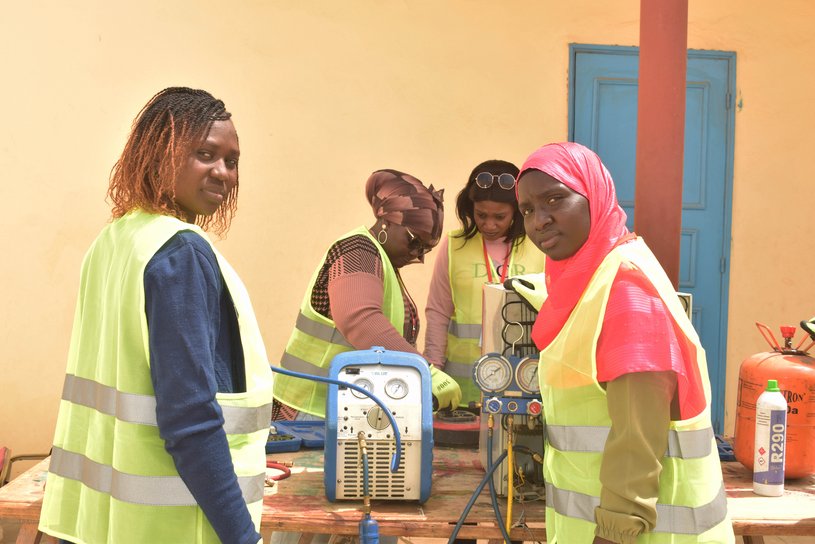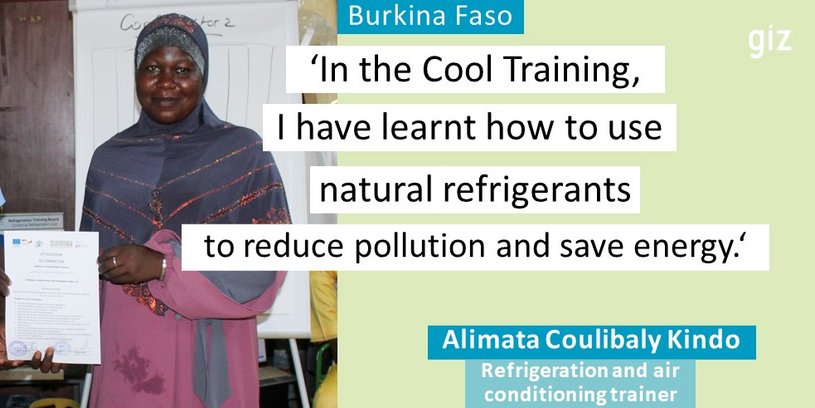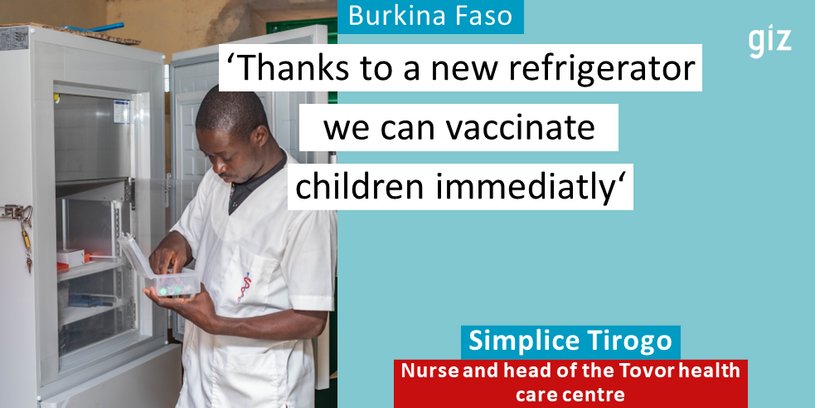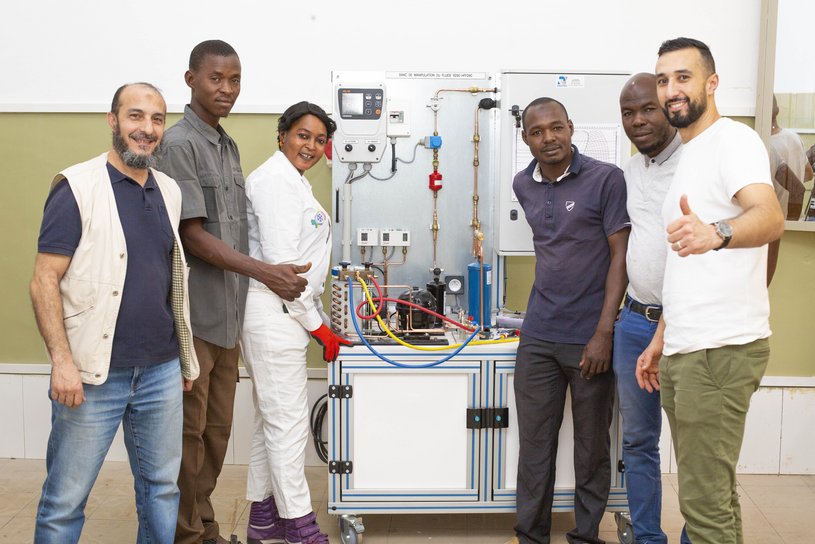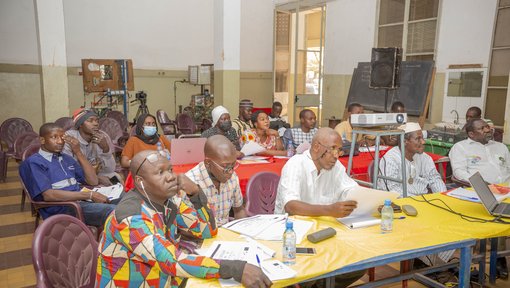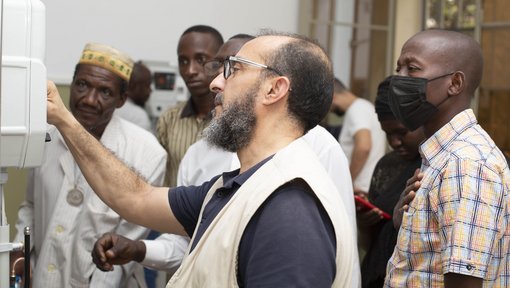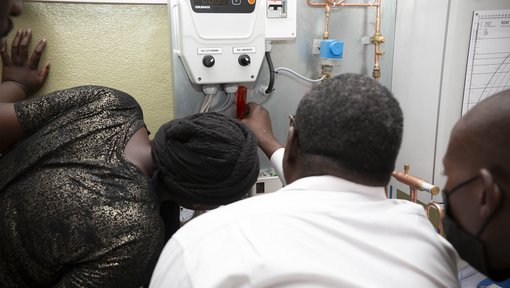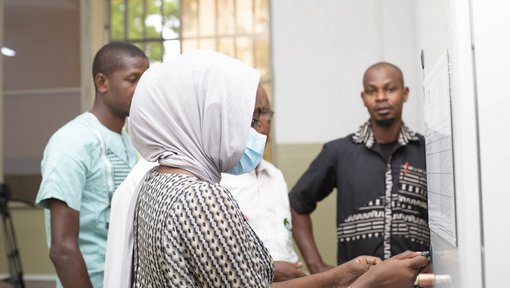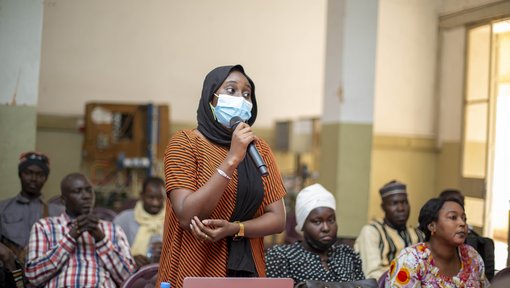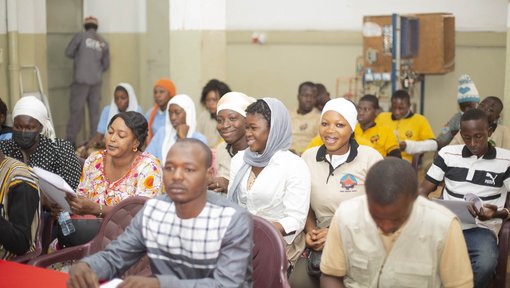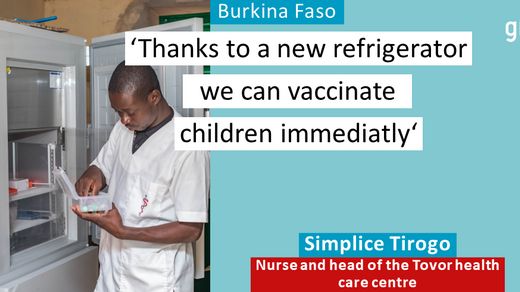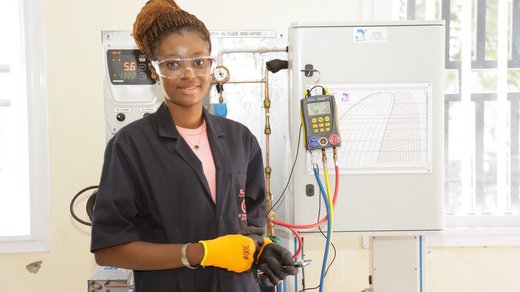More than just training: Mali's refrigeration technicians are committed to combating the climate crisis and protecting the environment.
The low level of knowledge of refrigeration and air conditioning stakeholders in Mali about fluorinated gases and natural refrigerants such as hydrocarbons, as well as the growing demand for refrigeration and air conditioning equipment, motivated the project "Ozone and Climate friendly Cooling in West and Central Africa (ROCA) (opens in a new window)" to organize ten training sessions on the safe handling of natural refrigerants. The training sessions took place from 24 October to 08 December 2023 at the Ecole Centrale pour l'Industrie, le Commerce et l'Administration (ECICA) in Bamako.
Ozone and Climate Friendly Cooling in West and Central Africa (ROCA)
The ROCA project is co-financed by the European Union (EU) and the Federal Ministry for Economic Cooperation and Development (BMZ) of the Republic of Germany. It is implemented by GIZ in four countries, three of which are in West Africa (Burkina Faso, Mali and Senegal) and one in Central Africa (Cameroon). In Mali, it is supervised by the Ministry of the Environment, Sanitation and Sustainable Development (MEADD).
This growing demand is undoubtedly contributing to increased energy requirements and greater use of refrigerant gases, most of which are harmful to the environment and contribute to global warming. As a result, these training sessions are a great help in supporting the Malian government's efforts to combat the climate crisis, protect the environment and implement the strategic axes of the Kigali Amendment and Mali's Nationally Determined Contributions (NDC).
167 New Experts on Natural Refrigerants
Consequently, to ensure that Mali does not remain adrift and a repository of synthetic refrigerants such as hydrofluorocarbons (HFCs) and hydrochlorofluorocarbons (HCFCs), the ROCA project plans to set up a pool of competent trainers in refrigeration and air conditioning. The aim is to promote the widespread use of natural refrigerants such as Propane - R290, or Isobutane - R600a.
Thus, this training approach allows to put in place experts in refrigeration and air conditioning in Mali that lay the groundwork in a sector that suffers from a lack of specialists. These training sessions enabled 167 people - a total of 25 women and 142 men - to be trained in the handling of hydrocarbon fluids, energy efficiency in refrigeration and in the installation of refrigeration and air conditioning appliances that work with natural refrigerant gases.
photo gallery I
Women Power
Involving women in the training will contribute to the wider dissemination of natural gas refrigeration appliances, as women form part of the driving force behind development, and play an important role in the transmission and application of information.
In the words of one participant: "These training courses will enable us women in refrigeration and air conditioning to compete with men in a profession they think is theirs. Well, they're wrong, because we women are more dedicated and we are capable of fully exercising this profession of refrigeration. And we're proud of it! ".
Following these training sessions, Mali now has experts who are able to install air conditioners that work with natural refrigerants, and training pools in the refrigeration and air conditioning sector.

